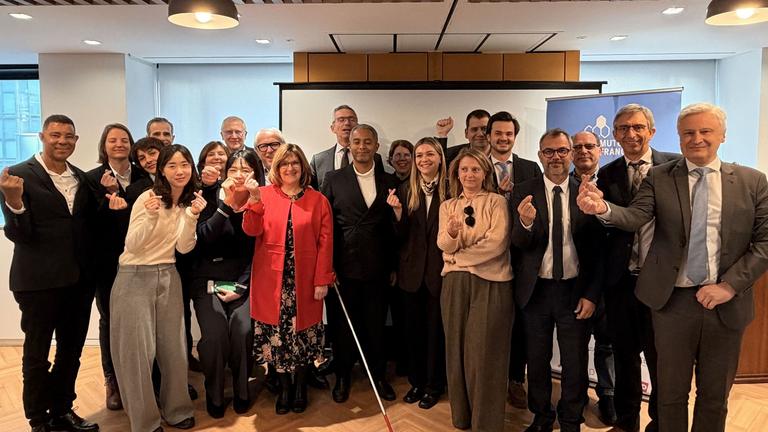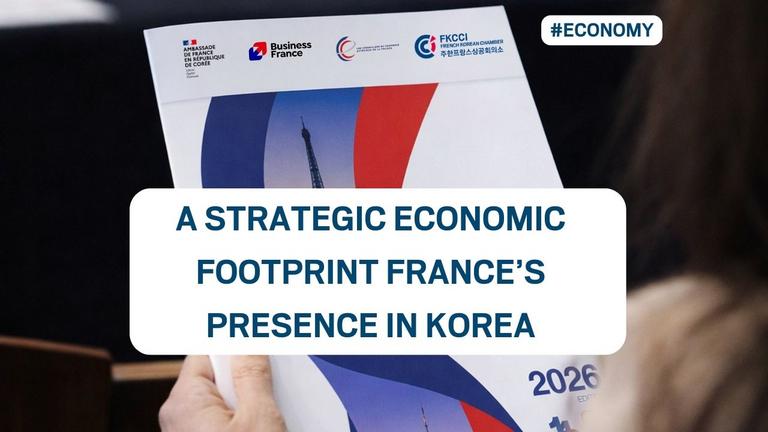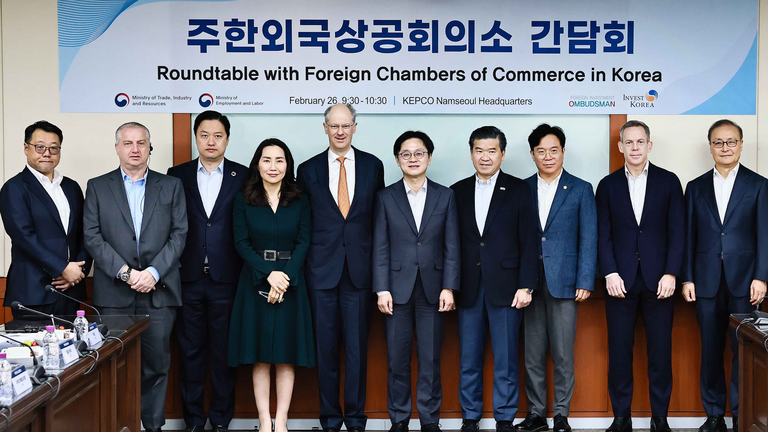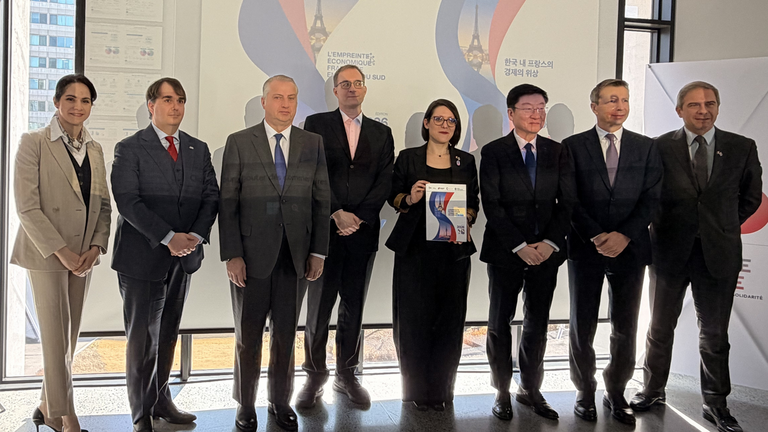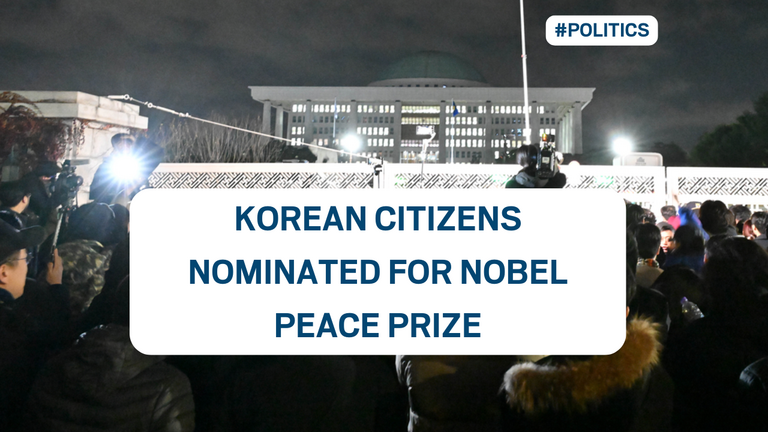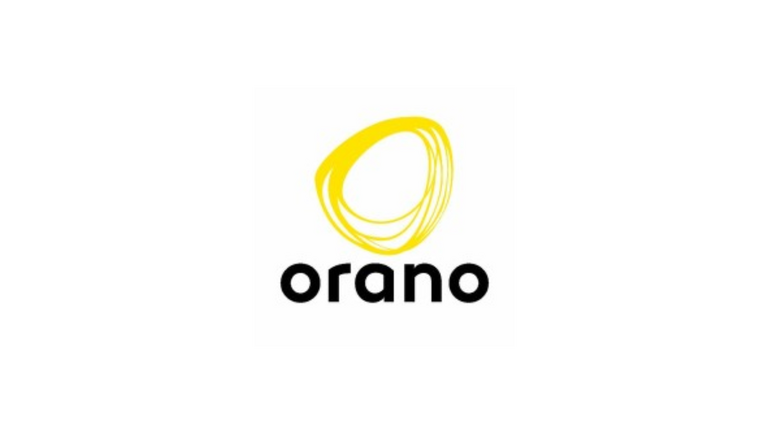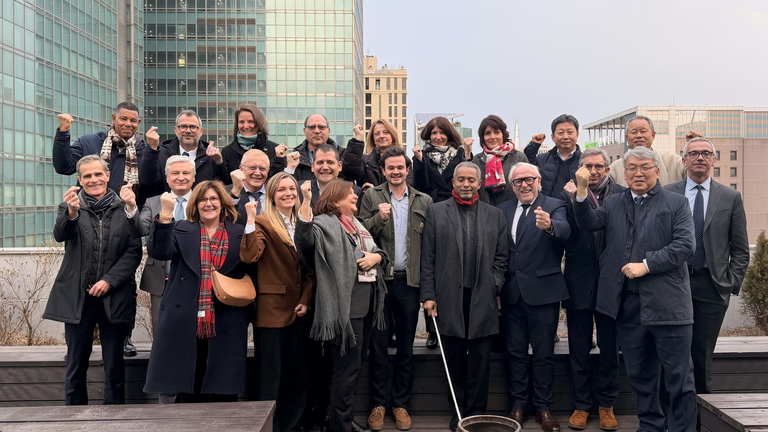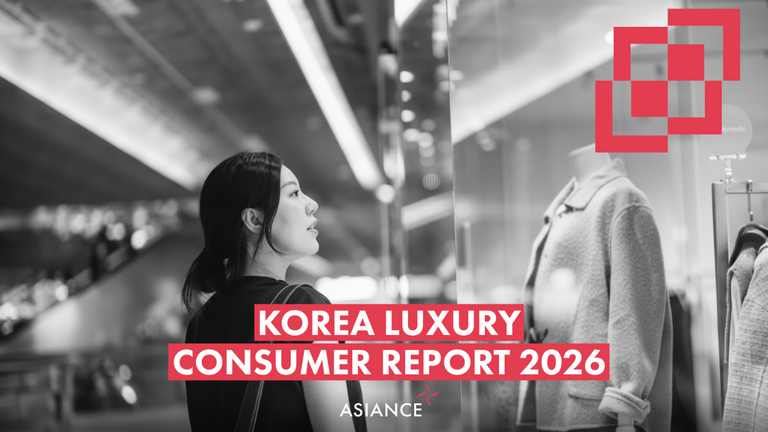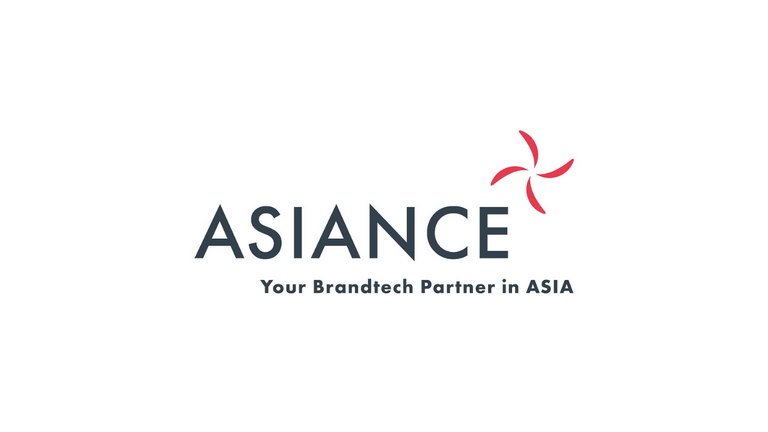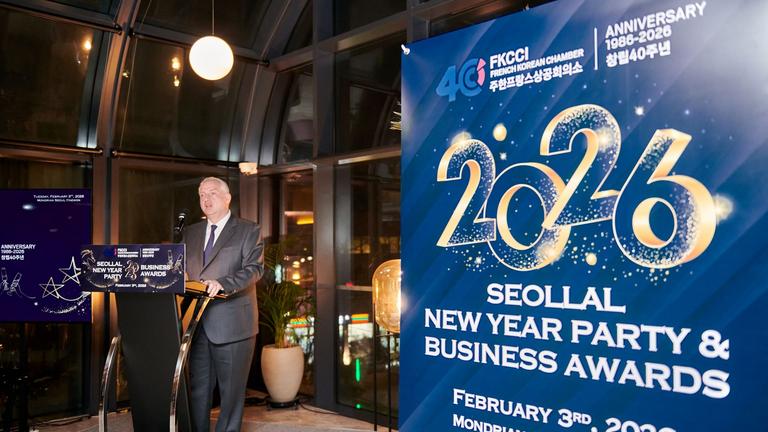Actualités • Bilans d’évènement
FKCCI, FKI and the U.S. Chamber’s Institute for Legal Reform hosted a seminar on the expansion of Korea’s class-action law
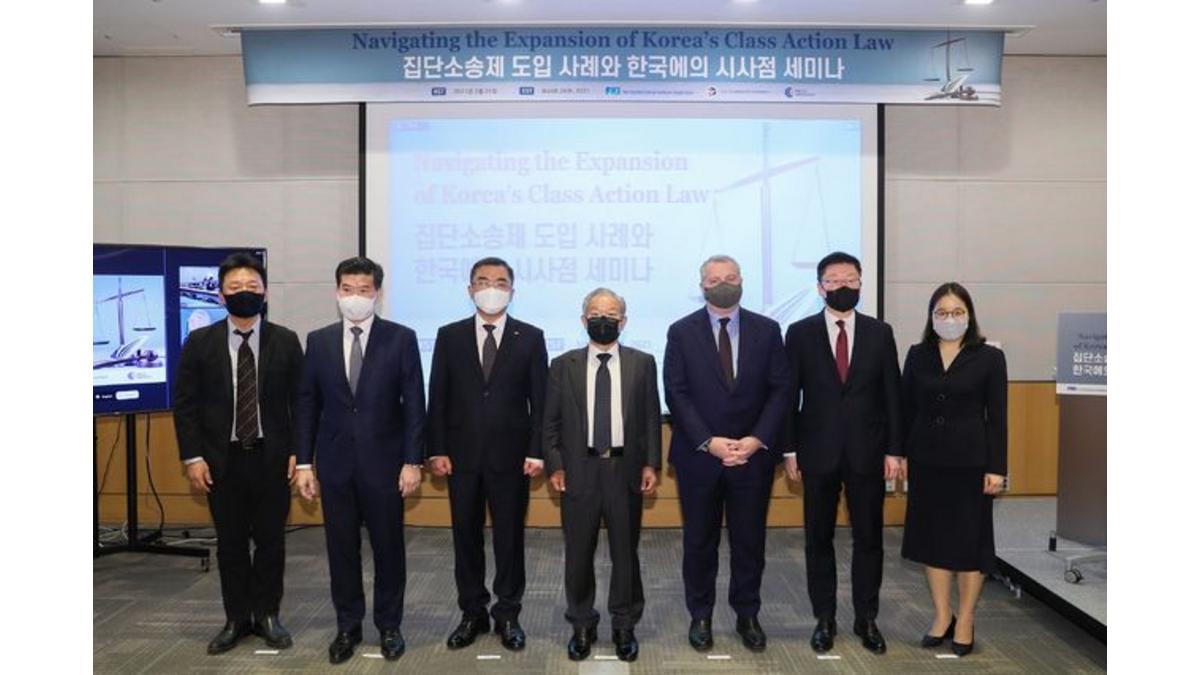
On March 25th, the French-Korean Chamber of Commerce and Industry co-organized with the Federation of Korean Industry (FKI) and the U.S. Chamber’s Institute for Legal Reform an insight session to better assess the challenges companies face in Korea regarding recent reform of class-action law. It was the opportunity to hear feedbacks from American experiences, while we could share the alternative model of French class-action, which offers specific safeguards.
Tae-shin Kwon, Vice Chairman & CEO of the FKI, Harold Kim, President if the U.S. Chamber’s Institute for Legal Reform, Seung-won Seo, Executive Vice Chairman of the Korea Federation of Small and Medium Business, David-Pierre Jalicon, FKCCI Chairman, and James Kim, AMCHAM Chairman, opened the seminar before leaving the floor to experts: Philippe Li, Honorary Chairman of FKCCI and foreign Attorney at Kim & Chang, John Beisner, partner at Skadden, Sy Nae Kim, partner at Yulchon, Scevole de Cazotte, Senior Vice President at the U.S. Chamber’s Institute for Legal Reform, and Jay Kim, Foreign Attorney at Kim & Chang.
In September 2020, the Korean government unveiled a bill proposal to expand the scope of the country’s existing class-action law and to introduce punitive damages. While the project is currently under review at the Ministry of Government Legislation and is to be submitted to the Ministerial Council before being discussed at the National Assembly, Sy Nae Kim explained the details of the bill and the impact it would have on businesses: “As the previous securities-based class-action is to be expanded to all fields if there are more than 50 claimants, it is now becoming a punitive damage claim lawsuit.” The amount of potential punitive damages is also set to increase. If a defendant inflicts damage to claimants intentionally or by gross negligence, the amount of compensation for damages was proposed as 'within the range not exceeding 5 times the actual damage', while the current damage compensation system ranges up to three times. In addition, the reform plans to reduce the burden to assert and prove on the plaintiff side, while asking the defendant more detailed logs of documents. In that regard, Mrs. Kim advised companies to foster a sound document management system and internal compliance policies.
Although the class-action law in Korea has been existing for 10 years, it has been rarely used, but we can expect more occurrences if the bills is adopted.
In that sense, attorney John Beisner warned that "before Korea enacts the law, it is necessary to focus on the actual cases of the class-action system in the United States", which originated the legislation and has witnessed several abuses in past cases. According to Beisner, the class-action system is one of the most controversial legislation in civil law because it has potential to infringe on the rights of individuals instead of actually defending consumers’ interest at the benefits of plaintiffs’ representatives and lawyers. “In some law firms, class-action is a business model”, he added, citing several risks such as extortion efforts backed by hedge funds paying upfront to bring up lawsuits, or “frivolous” class-actions when an individual issue is turned into a class- action based on questionable liability notions. As a result, “the pressure to compensate for very minor damages increases, and if all victims receive the same judgment, even a small amount of compensation may increase the burden on the company.”
Therefore, he stressed the importance of putting in place strong safeguards to prevent abuses, such as in the case of France. Indeed, “in France, class-actions can only be carried out by 15 consumer associations accredited by the government and in an opt-in system which requires to identify individually the identity of each claimants.", highlighted Mr. Philippe Li, Honorary Chairman of FKCCI. “Since 2014, only 21 class-actions have been brought in the country: quite few because the process is quite complex”, he added. Due to the sensitivity of the issue, the debate on class-action in France has been ongoing for a long time. “Former Presidents Jacques Chirac and Nicolas Sarkozy both tried to introduce it without success. Finally, it was implemented for the first time under the mandate of the President François Hollande in 2014 and was extended in 2016 to health, environment, discrimination at workplaces and personal data protection.”, explained David-Pierre Jalicon, FKCCI Chairman.
Considering radically different models of class-action legislation in both the U.S. and France, this event was a good opportunity to share challenges and best practices from abroad with Korean stakeholders.
